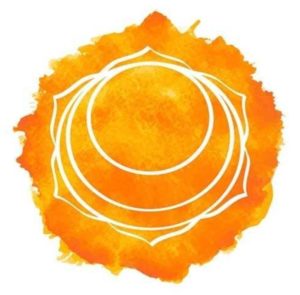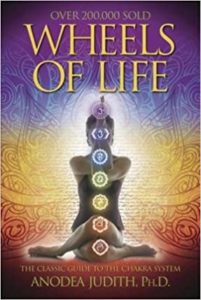Yesterday was my Access Bars training.
Ooooh boy, where to begin? It’s hard for me to explain this one. I’ll be poring over the workbook for the next few days, reading articles, collecting whatever information I can to describe it concisely. In essence, there are several points on a person’s head that correlate to various archetypal concepts and emotions. By pressing them, not unlike buttons, you can unlock and unload mountains of baggage. Sound far-out? Trust me, I get it. And yet, it’s possibly the single most life-changing healing modality I’ve ever experienced. I couldn’t not learn it. I couldn’t not incorporate it into my collection of offerings.
Expect much more on the mysterious, oddball magic of the Bars later.
Tomorrow is the “grand opening” of my little business. “Grand opening” in quotes because the big event consists of nothing more than starting the lease. But December 1st is nigh upon us, and changes are afoot.
Which brings me to (a day late, due to my training), the second chakra – a chakra relating to, among other things, change itself.
From the Good Book, Wheels of Life: The Classic Guide to the Chakra System, by Anodea Judith:
Sacral Chakra

Pleasure, as befits the duality of the second chakra, is a two-edged sword. It’s an easy chakra to get trapped in, yet the trap can result from avoiding pleasure as much as indulging in it. The balancing of any chakra requires opening to its particular energy, without becoming excessively attached.
Pleasure invites us to expand, while pain generally makes us contract. If we are to expand from the fixed form of the material world into limitless consciousness, pleasure may be one of the first steps along that path, inviting consciousness to travel through the entire nervous system as well as to reach out toward others. In addition, pleasure invite surrender, which is a necessary process for spiritual awakening.
Pleasure allows us to tune into our sense. It is emphasized in some Buddhist and Hindu belief systems that both pleasure and the senses are misleading – that through sensation we deprive ourselves of knowing the true nature of reality. Yet the senses are the very extension of that consciousness that seeks to know. Our subtler senses may allows us to see the inner planes, but the dulling or repression of the gross senses is no way to achieve this! As Alan Watts wrote: “Ascetic spirituality is a symptom of the very disease it intends to cure.”
Unfortunately, we are taught to beware of pleasure, that it’s a dangerous temptress waiting to lure us away from our true path. We are taught to repress our need for pleasure, and in so doing, repress our natural bodily impulses, and once again, segregate mind and body. We may then experience a backlash in our emotions.
Emotions are inherently tied in with movement. We repress feelings by restricting movement, and conversely, movement can free the emotional holding that causes chronic tension. Emotions are a complex, instinctual reaction to pleasure and pain. To block an emotion, we restrict movement. The emotion may remain in the unconscious – meaning we are unaware of it – yet still wreak havoc on our lives.
It takes energy to repress emotion, so releasing emotions releases tension (if done appropriately). Absence of tension creates a harmonic flow within the body/mind. This creates pleasure of an even deeper level, allowing deeper connections with others.
Sexuality is a life force. Yet we live in a culture where this element of our lives is either repressed or exploited. Television screens allow children to watch countless murders and crime shows but censor any scenes that involve nudity or lovemaking. Hard work and upward mobility are stressed (and stressful), while those who engage in life’s simple pleasures are called lazy, weak, or self-indulgent. Still, the need for pleasure pushes onward, and people instead seek negative outlets in the form of alcohol and drugs (to loosen cultural inhibitions), sexual addiction, violence, rape, and crude pornography, while millions of dollars’ worth of advertising play on the repressed sexuality in all of us. When something vital and natural is taken away, the resulting gap can be used as an implement for control. What’s taken away is sold back to us, piecemeal, and we are less than whole because of it.
James Prescott has made studies of cultures comparing sexual repression to the incidence of violence. The more stringent the taboos are about sex, the more violent the culture. Conversely, the more sexually permissive the culture, the lower the crime rate.
Nurturance is the final summation of sexuality and a fundamental need of the body, the mind, and the soul. Nurturance means caring for, feeding with energy, love, and touch. Nurturance is the essence of maternal qualities, our first experience of blissful transcendence, of warmth and security.
In laboratory studies with rats, it has been shown that small mammals will choose being touched over eating when deprived of both. With all other conditions equal, petted rats learn faster and grow faster than those treated coldly. Without touching, the important mind/body interface may remain seriously underdeveloped.
Clairsentience is the psychic sense of the second chakra, the first stirrings of “higher” consciousness and the development of greater sensitivity toward others. Mother’s psychically tuned into their children are the most common group of clairsentients. A child may be at school, far away from the mother, and the mother will sense a difficulty in which the child has suddenly found him or herself in. The mother may or may not recognize the source of the disturbance, though it effects her nonetheless. Other people may experience abrupt mood changes as they involuntarily take on the moods of one friend or another. Often these people have an aversion to crowds and avoid parties. Most people are clairsentient to some degree.
Clairsentience is a valuable source of information and helpful in the development of psychism. With conscious attention, it is an aid rather than a detriment. Many people get psychically bombarded by the unconscious broadcasting of surrounding difficulties. For these people, grounding is of utmost importance for it brings our attention into the central line of our body, helping us sort out “whose energy is whose.” Recognition of the phenomenon is the next step. Many clairsentients feel compelled to respond to the needs they psychically pick and, with recognition, this can become a choice rather than a duty. Awareness of others should be balanced with awareness of self.
